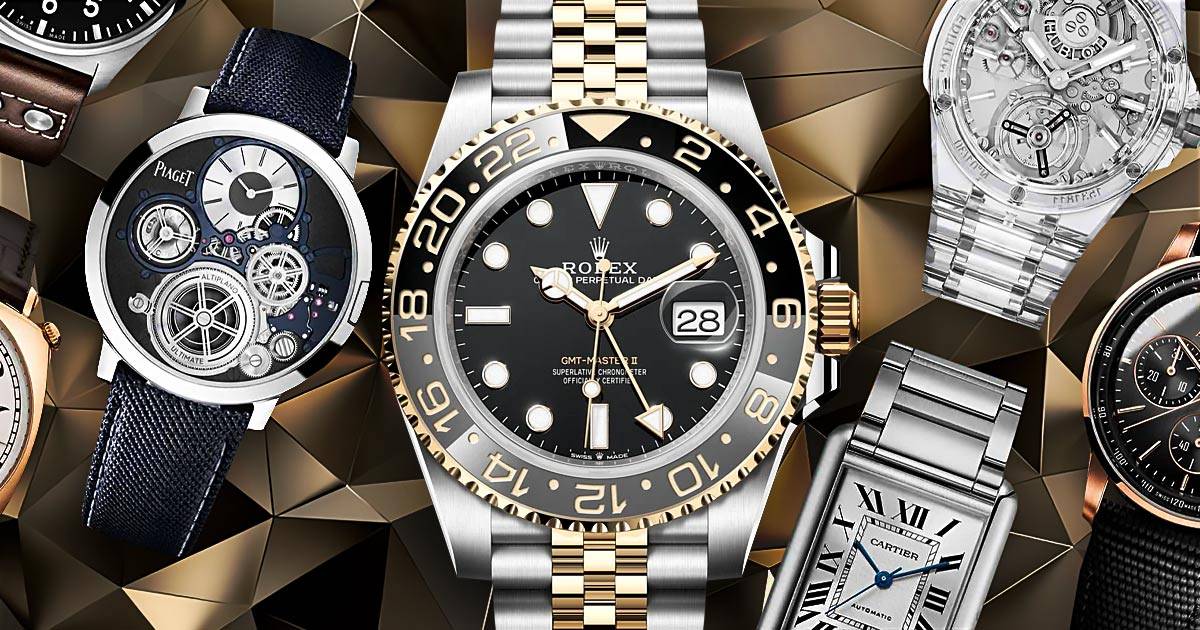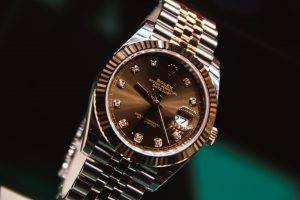The 8 Important Factors That Makes Luxury Watches So Expensive

Luxury watches, those exquisite timepieces coveted by collectors and aficionados, have a unique allure that transcends their primary function as timekeepers. These watches represent craftsmanship, prestige, and status. However, the magnificence of luxury watches often comes with a steep price tag. In this article, we delve into the eight key factors driving up the prices of these opulent timepieces and explore why luxury watches are indeed so expensive.
What is Considered A Luxury Watch?
Before delving into the factors driving the steep prices of luxury watches, it’s essential to establish the criteria for categorizing a timepiece as a luxury watch. Luxury watches transcend their primary function of timekeeping; they serve as a canvas for self-expression. These timepieces are predominantly created by esteemed brands renowned for their rich heritage, impeccable craftsmanship, and continuous commitment to innovation. In this realm, the price tag is not solely indicative of quality; it signifies exclusivity, a storied legacy, and the embodiment of artistry.
When identifying a luxury watch, several key characteristics come to the fore. First and foremost is the brand’s reputation, often earned over centuries, for producing exceptional timepieces. The craftsmanship involved in meticulously designing and assembling each watch is another hallmark. Luxury watches often feature intricate movements, made by skilled horologists, and may incorporate rare and precious materials. Additionally, these watches typically have a unique and aesthetically pleasing design, reflecting the brand’s style and identity. Overall, luxury watches offer more than a mere display of time; they encapsulate a rich tapestry of history that sets them apart from their counterparts.
The 8 Key Factors That Makes Luxury Watches Expensive
Now, let’s dive into the factors that contribute to the hefty price tags of luxury watches.
1. Exquisite Craftsmanship
At the heart of luxury watchmaking lies an unwavering commitment to precision and craftsmanship. These watches are not mass-produced; they are meticulously assembled by skilled artisans. Every component, from the movement to the case and dial, undergoes meticulous handcrafting and rigorous quality control. This level of attention to detail and craftsmanship is a labor-intensive process that significantly increases production costs.
2. In-House Movement Production
Many luxury watch brands pride themselves on producing their movements in-house. This means that they design, develop, and manufacture their movements rather than using off-the-shelf movements. Crafting movements in-house allows these brands to maintain control over quality, innovation, and exclusivity. However, this independence comes at a price, as developing and producing intricate movements is a resource-intensive endeavor.
3. Limited Production
Exclusivity is a hallmark of luxury watches. Unlike mass-produced timepieces, luxury brands deliberately limit the production of their watches to maintain rarity and desirability. This limited production results in higher costs per unit but adds a sense of prestige to each watch.
4. Precious Materials
High-end timepieces frequently utilize valuable materials such as gold, platinum, or titanium in their casings and straps. These elements not only elevate the visual appeal but also substantially raise the price. Furthermore, gem-set watches, adorned with diamonds or other precious stones, command even higher prices due to the value of the gems.
5. Complications and Innovation
Complications, additional functions beyond basic timekeeping, are a hallmark of luxury watchmaking. These can include chronographs, tourbillons, perpetual calendars, and more. Developing and incorporating such complications demands extensive research, development, and engineering. The pursuit of innovation and pushing the boundaries of horology adds both intellectual and financial value to these timepieces.
6. Heritage and Brand Prestige
Luxury watch brands often boast centuries-old legacies and iconic status. Their history and heritage contribute to their aura of prestige, which, in turn, elevates their prices. Owning a watch from a brand with a storied past is akin to possessing a piece of horological history.
7. Hand-Assembled and Hand-Finished
The assembly and finishing of luxury watches involve painstaking manual labor. Expert watchmakers carefully assemble each component, ensuring that everything operates flawlessly. The meticulous hand-finishing of movements, with intricate polishing and decoration, is a time-consuming process that adds to the cost.
8. Global Distribution and Retail
Luxury watches are typically sold through an exclusive network of authorized dealers and boutiques. The costs associated with global distribution, including rent, staff, and marketing, contribute to the final price. Moreover, retailers often work on healthy margins, adding to the overall cost.
Why Are People Still Buying Them?
Even with their considerable costs, luxury watches maintain their allure among aficionados and collectors. Here are a few reasons why these timepieces maintain their allure:
- Symbol of Success – Luxury watches are symbols of achievement and success. Wearing one can convey financial prosperity and professional accomplishments, making a powerful statement in both personal and business settings.
- Emotional Value – Many individuals develop deep emotional connections with their luxury watches. Many times, these watches transform into family heirlooms, traversing generations and bearing tales and recollections.
- Investment Potential – Luxury watches can be more than accessories; they can be investments. Certain models gain value as time passes, rendering them desirable assets for investors and collectors.
- Attention to Detail – Enthusiasts and collectors appreciate the incredible attention to detail and craftsmanship that luxury watches embody. The intricate movements and hand-finished components exemplify the pinnacle of horological artistry.
Are Luxury Watches Really Worth It?
The appeal of luxury watches is not just because of their elegant appearance and precise timekeeping capabilities. It is, however, fair to question whether these opulent timepieces genuinely merit their high price tags. The answer to this inquiry is inherently subjective, influenced by personal values, interests, and perspectives For some, the combination of exceptional craftsmanship, heritage, and prestige justifies the cost. Others may view luxury watches as extravagant indulgences.
What is undeniable, however, is that luxury watches represent more than just timekeeping instruments. They encapsulate history, innovation, and artistry. They are tangible expressions of human achievement in the field of horology. Whether they are worth the investment ultimately depends on individual preferences and values.
Luxury Watches Can be Good Investments
While the purchase of a luxury watch should not be solely driven by the expectation of financial gain, it’s worth noting that many luxury watches appreciate in value over time. Rare and limited-edition models from esteemed brands can become sought-after collector’s items, fetching significantly higher prices in the secondary market.
In summary, luxury watches transcend their role as mere adornments, representing embodiments of artistry, rich historical narratives, and impeccable craftsmanship. The high cost of luxury watches is driven by a combination of factors, including craftsmanship, materials, innovation, and brand prestige. Their enduring appeal lies in their ability to convey success, evoke emotions, and, for some, offer the potential for a sound investment. Whether you view luxury watches as extravagant indulgences or valuable investments, their significance in the world of horology remains unquestionable.


